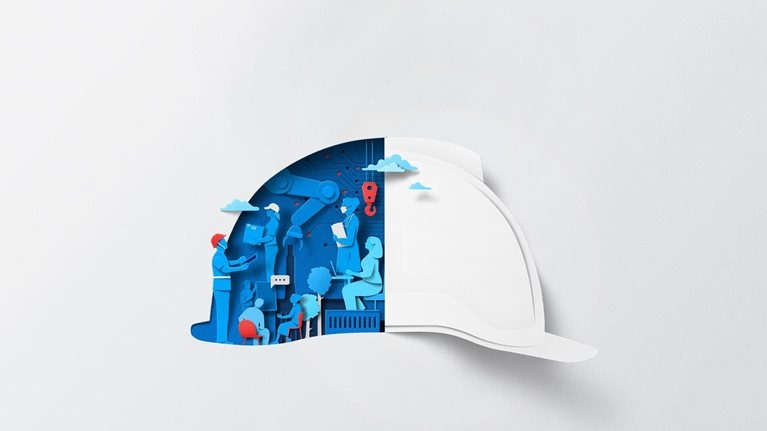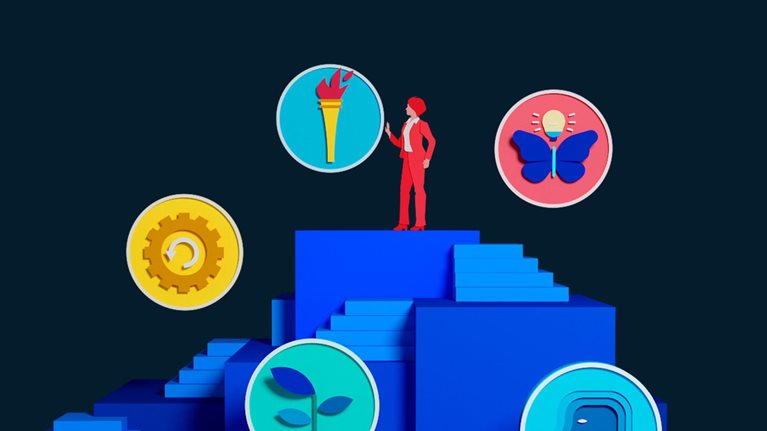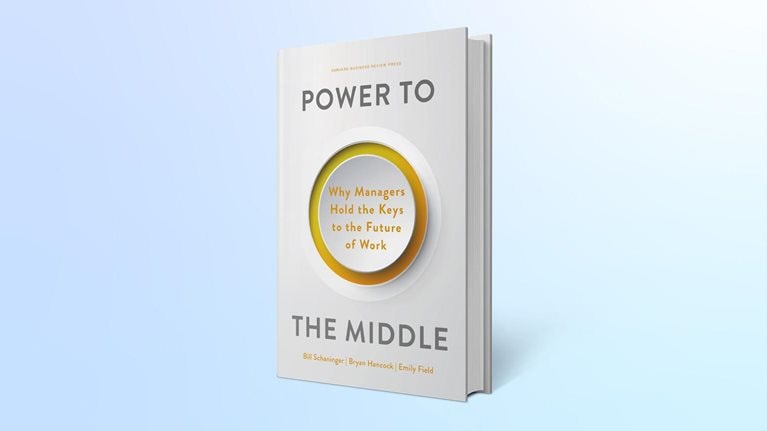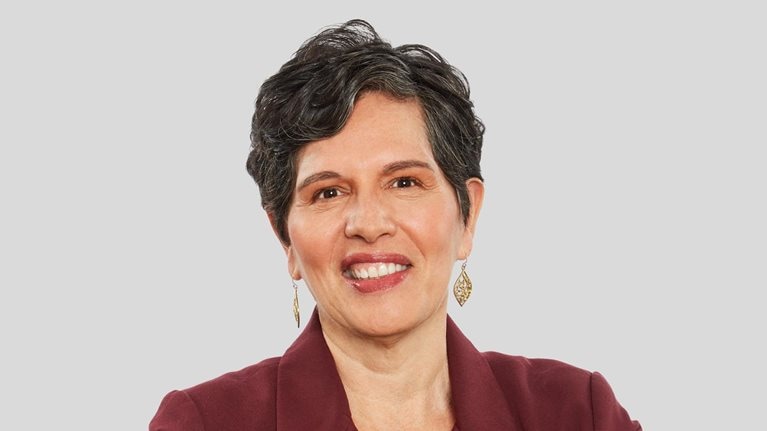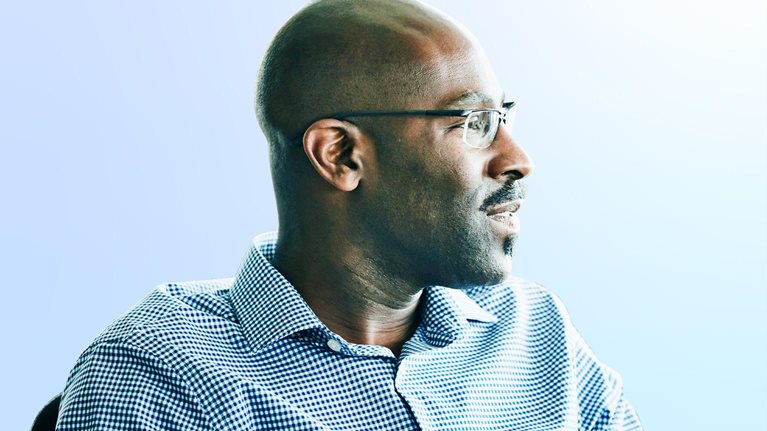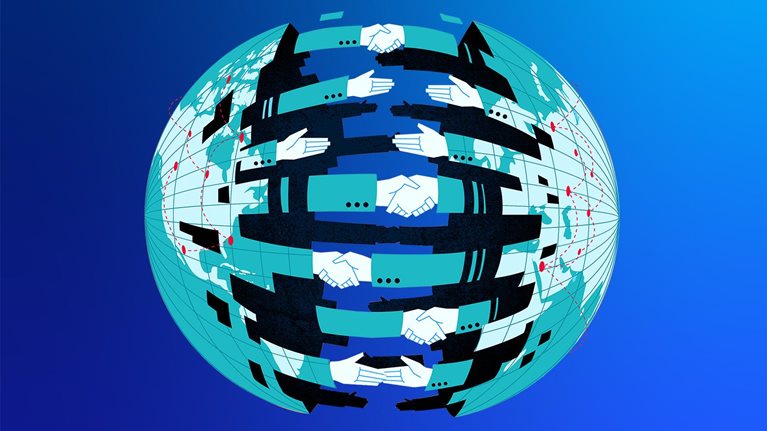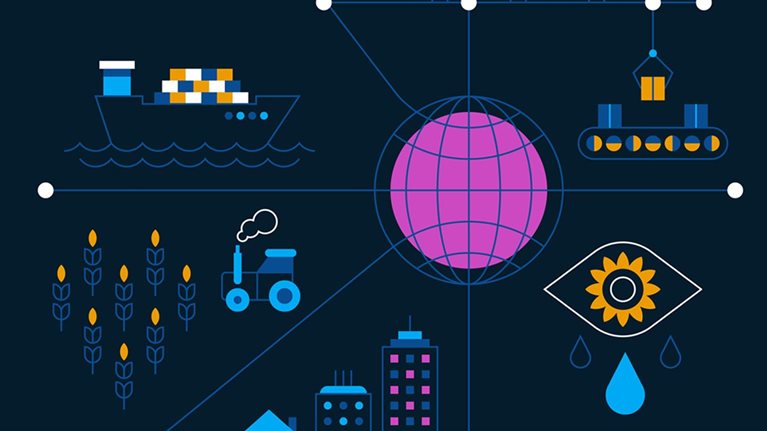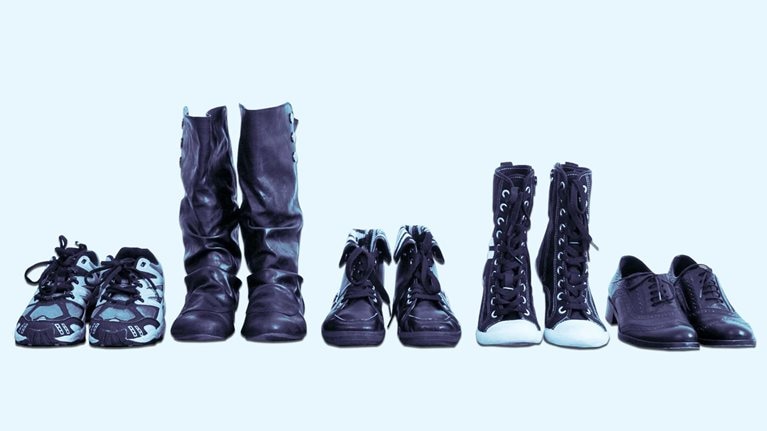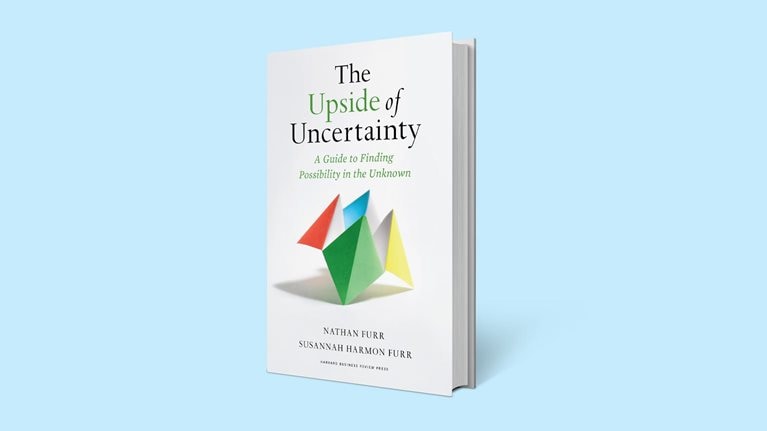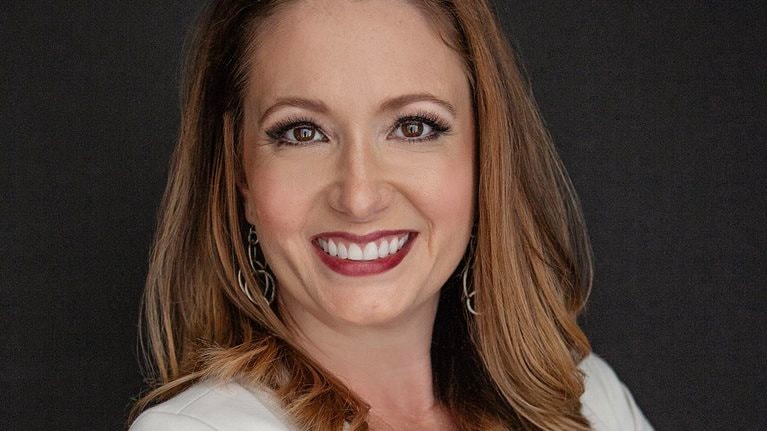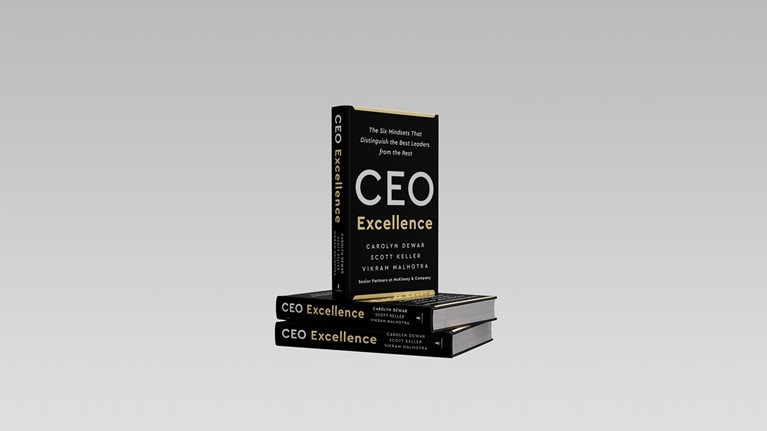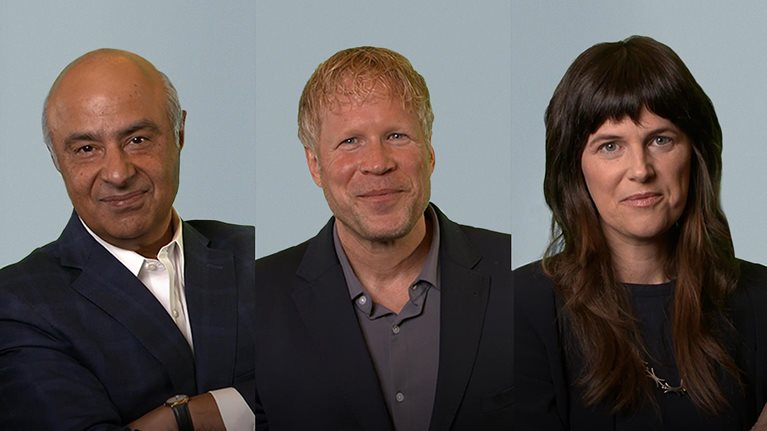Only McKinsey Perspectives
What the headlines mean for leaders
Private equity exits are thawing, the CIO’s expanding mandate, and boosting your company’s competitive advantage
-
PE-backed exits rebounded in 2025, and so did the value of these deals, which rose more than 40% year over year. Yet liquidity remains subdued, say McKinsey’s Alexander Edlich, Chris Llewellyn, Christopher Croke, Rahel Schneider, and Warren Teichner in the Global Private Markets Report 2026.
A surge in M&A, the value of human leadership, and making progress possible
-
Global M&A rebounded sharply in 2025 as easing financial conditions, resilient balance sheets, and renewed confidence helped push global deal activity to 4.2 percent of the total market value.
AI’s ‘legacy moment’ for CEOs, work and well-being, and Europe’s economic prospects
-
AI is more than a mere productivity tool for businesses; it’s an existential change to how work is done.
How disruptors are reshaping the CPG industry. Plus, the growing power of Latino sports fans and the productivity imperative
-
Disruptor brands are taking the lead in the consumer-packaged-goods (CPG) industry, with disruptor-led growth reshaping nearly every category.
Redefining the value of the human brain. Plus, partnering to build resilience and decoding supply chain disruptions
-
The world has long underinvested in brain health, say McKinsey’s Erica Coe, Jacqueline Brassey, Kana Enomoto, and Lucy Pérez.
Global trade’s cooperation, agentic AI explained, and the 21st-century risk leader
-
Despite the headwinds from tariffs and a raft of other geopolitical issues, global leaders continue to cooperate at the same level as in previous years.
A skills evolution, true transformations, and building leaders’ AI muscles
-
Work of the future will be a partnership between people, AI agents, and machines, as AI continues to transform how work happens—and by whom. According to McKinsey’s Anu Madgavkar, Sven Smit, Alexis Krivkovich, Michael Chui, and coauthors, the technology could automate many work hours.
New research on women at work. Plus, why reinvention is the next frontier of change and McKinsey’s top insights from a year of bold moves
-
Women remain underrepresented at all career levels, and companies’ commitment to their advancement appears to be declining. In the 2025 Women in the Workplace report from McKinsey and LeanIn.Org, McKinsey’s Alexis Krivkovich, Drew Goldstein, and Megan McConnell reveal that just over half of companies say women’s career advancement is a high priority.
A new era for shopping. Plus, how innovation accelerates growth and what all companies can learn from private equity.
-
Agentic commerce, or shopping powered by AI agents, represents a seismic shift in the consumer experience. Agents could anticipate customers’ needs, navigate shopping options, negotiate deals, and execute transactions, transforming shopping in the process, write McKinsey Partners Katharina Schumacher and Roger Roberts and their coauthor.
What will airport travel be like in 2040? Plus, a new agenda for the fashion industry and how to capitalize on enterprise technology
-
Tomorrow’s airports will need to adapt as aviation evolves. That’s according to Senior Partners Alastair Green, Kelly Ungerman, and Vik Krishnan and other McKinsey experts, who explain how automation, AI, and biometrics could transform airport design and personalize the passenger experience.
New rules of consumer trust, the agentic era’s emerging risks, and well-being at work
-
Is everything that companies know about consumer sentiment wrong? Not exactly, but sentiment and behavior have diverged in ways that challenge how organizations make sense of consumer signals. In an episode of the McKinsey on Consumer & Retail podcast, McKinsey Partners Christina Adams and Kari Alldredge share the key insights from a survey of more than 25,000 consumers across 18 countries.
Moving beyond AI experimentation, the global balance sheet, and shifting economics in Asia
-
As companies’ AI adoption continues to increase apace, their ability to scale and capture value from the technology is less consistent.
AI-powered learning, the future of banking , and the global energy outlook
-
As AI reshapes how people work and learn, the role of chief learning officers (CLOs) is entering a new era. Work and learning are merging, say McKinsey Partners Bryan Hancock and Heather Stefanski and their coauthor.
A new playbook for corporate affairs. Plus, CEO succession planning and how to age healthily
-
Geopolitical tensions and policy changes have put unprecedented pressure on organizations’ corporate-affairs functions. To keep pace, the function—which is responsible for guiding management’s responses to these issues, while navigating the shifts themselves—needs to refresh its approach, say McKinsey Partners Robin Nuttall and Ziad Haider.
The evolution of FDI, the age of AVs, and keeping transformations on track
-
FDI is experiencing a significant shake-up. A growing share of capital is going toward future-shaping sectors while the geopolitical distance between pledged investments appears to be shrinking.
AI is creating new paradigms for the organization and infrastructure. Plus, a stablecoin boom
-
AI is ushering in the biggest paradigm shift since the industrial and digital revolutions: the “agentic organization,” according to McKinsey Senior Partners Alexander Sukharevsky and Alexis Krivkovich and coauthors.
The technologies that matter most for today’s companies
-
Today’s executives must manage growing complexity, implement emerging tech solutions, and build trust in a world where the digital and physical realms are continuing to blur.
How CEOs can become chief storytellers
-
In today’s uncertain business landscape, CEOs are in the spotlight more than ever. Stakeholders, from employees and board members to customers and suppliers, are looking more and more to CEOs to make sense of the risks and opportunities that disruptive trends—including gen AI, geopolitics, and shifting workplace dynamics—present.
How consumer companies can turn AI and automation into value
-
By 2030 and beyond, the roles, functions, and required skills and capabilities in leading consumer organizations will look far different than they do today.
How can the public sector improve productivity?
-
As the US seeks to redefine the role, scale, and scope of the federal government, productivity is once again in the spotlight.
What are the challenges and opportunities for US healthcare?
-
Amid challenges such as lower utilization rates, many healthcare segments are likely to recover in the coming years.
What’s needed to produce enough materials for the energy shift?
-
The global metals and mining industry is entering a new era, explain McKinsey senior partners Karel Eloot and Michel Van Hoey and their coauthors.
What does it take to be an effective leader?
-
Because good leadership is often expressed through behavior, it’s a skill that can be learned.
A new kind of sustainable style
-
The fashion industry is a major contributor to climate change and biodiversity loss, making its sustainability efforts crucial for the planet’s health.
Did you miss any of our most-read issues?
-
Thank you for being a valued reader of Only McKinsey! As we do every year around this time, we’re taking a brief pause from our newsletter, but we’ll be back in your inbox on September 3 with a new name: Only McKinsey Perspectives.
How are fast-fashion retailers shaking up the industry?
-
Fast-fashion retailers compress production cycles, enabling shoppers to expand their wardrobes quickly and cheaply.
Do you know which country has the highest level of gender equality?
-
This year’s Women in the Workplace report reveals some hard-fought gains at the top, with women’s representation in the C-suite at the highest level it has ever been.
How can companies ensure that they pick the right CEO to succeed the previous one?
-
To succeed with succession planning, boards must recognize and address their tendencies toward similarity bias.
Know how to engage employees?
-
By identifying where workers fall on a satisfaction spectrum, employers can help boost morale and motivate employees.
What should you know about gen AI?
-
Generative AI, a form of AI that uses algorithms to create content, has come a long way since ChatGPT burst on the scene in 2022.
How the best CEOs navigate the role
-
The much-coveted CEO role is the pinnacle for many talented senior executives. To secure the top job, candidates need foresight, boldness, and humility. However, it’s important for aspiring CEOs to examine their motivations and determine whether they’re sustainable. Otherwise, CEOs will be less likely to succeed, explain McKinsey senior partners Carolyn Dewar, Scott Keller, and Vikram Malhotra—coauthors of the New York Times best-selling book CEO Excellence: The Six Mindsets That Distinguish the Best Leaders from the Rest—and Kurt Strovink.
Do you think that the world economy is improving?
-
In the latest McKinsey Global Survey on economic conditions, executives’ outlook on domestic conditions in most regions has become more hopeful.
Which gen AI operating models can help banks achieve the most value?
-
Financial institutions that use centralized gen AI operating models are reaping the biggest rewards.
The energy industry can make changes to attract younger workers
-
To be successful, energy companies should be agile, efficient, and fast—all while operating in an industry for which talent is scarce, potential M&A is looming, and generative AI is poised to shake things up.
Are you ready for the next wave of M&A deals?
-
CEOs across industries say that M&A is a more vital strategy than ever.
What’s really holding women back at work?
-
It’s not the glass ceiling that holds women back from advancing their careers; it’s the broken rung, according to McKinsey and LeanIn.Org’s 2023 Women in the Workplace report.
How is the workforce changing in 2024?
-
After decades of thinning out middle management, organizations are investing more in the leaders that they have.
Leaving the CEO role for new pastures is tough. Here’s how to get it right.
-
Succession planning is crucial for CEOs, but it can get short shrift as leaders get caught up in the day-to-day grind.
Curious about Davos? Here’s a refresher on themes and topics.
-
For 2024, McKinsey’s knowledge collaborations with WEF are intended to foster global cooperation for
sustainable, inclusive growth.
Middle managers don’t always want to be promoted. How should leaders reward them?
-
Squeezed between executives and frontline workers, middle managers are a critical yet often neglected group.
Family-owned businesses often earn superior returns. New research tells us why.
-
Resilient and adaptable, family-owned businesses—companies in which founders or descendants hold significant share capital or voting rights—have survived and thrived for decades.
Offices sit vacant as hybrid work persists. How can leaders reenvision real estate?
-
A substantial number of knowledge workers would prefer to resign or accept a pay cut rather than come into the office more.
What business books are on your bookshelf?
-
McKinsey—through the media company Circana, which develops the lists—offers the most comprehensive resource available to explore the business books currently most popular in the US.
It’s tough for companies to grow. One C-suite partnership is especially important.
-
The relationship between CEOs and CMOs, particularly how CEOs and CMOs both define marketing’s role in shaping growth strategy, is highly correlated to their companies’ performance.
What to know about Web3
-
If and when Web3 fully arrives, it will signal a new era of the internet, one in which community-run networks control use and access.
Women are ‘breaking up’ with unfulfilling jobs. What can employers do?
-
For the first time, women leaders are voting with their feet; they’re leaving their jobs for more fulfilling work in unprecedented numbers, adds Krivkovich.
Change is hard. But it can also give companies a competitive edge.
-
After years of McKinsey research on transformations, some persistent truths remain: a comprehensive approach to change is best, and the value at stake is incredibly high—and easy to lose.
Companies are already hiring prompt engineers. Why is that a critical role?
-
Prompt engineering will likely become a larger hiring category in the next few years.
There are four plausible paths for global wealth. Here’s how each could play out.
-
Is it possible for the world to return to an era of productive growth?
Generative AI is already starting to change the business world. Are you working with it yet?
-
By 2030, gen AI could enable automation of up to 70% of business activities, adding trillions of dollars in value to the global economy, McKinsey research shows.
China has become a tougher market. How do global companies strengthen supply chains?
-
For global companies, China’s skilled labor force, extensive supplier ecosystem, and fast-growing domestic markets have long acted as a magnet for manufacturers.
How motivated are you? New research reveals what disengaged workers cost companies.
-
As labor costs have increased and worker productivity has declined, companies are struggling to find objective ways to gauge employee effectiveness.
We knew her when: Unilever’s past CHRO (Chanel’s new CEO) on reimagining work
-
The COVID-19 pandemic broke traditional models of employment, says Leena Nair, former CHRO of Unilever.
If you’re feeling burned out, you’re not alone. How widespread is employee burnout?
-
In all 15 countries surveyed by McKinsey, toxic workplace behavior was the biggest predictor of burnout symptoms and intent to leave—by a large margin.
Want the inside scoop on how CNN’s new CEO led a digital transformation at the New York Times?
-
Under former president and CEO Mark Thompson’s watch, the New York Times’s digital readership jumped from half a million to nearly 5.7 million subscribers.
Want to experience better travel? Here’s what innovators see for the future of hotels.
-
The hotel of the future is a place where “every single pain point will be removed” and almost every aspect of your stay will be personalized to your tastes.
How could generative AI and automation technologies transform work in America?
-
Many US employers are speeding up adoption of automation technologies. Generative AI is extending the possibilities for automation to a much wider set of careers.
Our 2023 summer reading guide is here
-
Our annual summer reading list reflects today’s evolving times, with selections by CEOs, founders, and editors from around the world, including picks from McKinsey leaders.
As heat and humidity rises, could India get too hot to work?
-
As India faces a rapidly changing physical environment, extreme heat and humidity could put millions of lives and billions of dollars at risk.
Do you know how to create value from generative AI?
-
Today’s generative AI boom offers a unique chance for CIOs and CTOs to guide the C-suite in turning the promise of generative AI into sustainable value for the business.
From Gen Z to boomers, are we all really so different at work?
-
As multiple generations work side by side at the office, people are paying more attention to age-based differences, explain partner Bryan Hancock and McKinsey alumnus Bill Schaninger on an episode of the McKinsey Talks Talent podcast.
As people leave urban centers, can superstar cities like London and Paris stay vibrant?
-
Real estate in the world’s superstar cities—places that claim a disproportionate share of urban GDP and GDP growth—faces tough challenges. How long could the pain last?
Middle managers are vital to organizational health and performance. How can you best support them?
-
Organizations with top-performing managers yield stronger shareholder returns than those that don’t, McKinsey research reveals.
The rise of social commerce—and other social media trends businesses should know
-
Social media has four primary functions for businesses, including using social channels to respond to consumer requests.
Never too tired to make a sale, generative AI is reshaping marketing at lightning speed
-
Generative AI is particularly good at generating personalized content and communication, due to its ability to analyze customer characteristics, behavior, and preferences.
Why should companies try to function as “one firm”?
-
Capturing the full value of operating as one firm—which emphasize a collective identity, working in teams, and shared decision making—is elusive for most.
What could your commute look like in 2035?
-
Moving away from private-car use—which contributes to road congestion and increased carbon emissions—and toward shared mobility could create a more seamless and sustainable mobility ecosystem.
Young children are experiencing trauma. What should parents and educators do?
-
Many children under five have traumatic experiences that affect their physical, emotional, and cognitive development, says Sesame Workshop’s Jeanette Betancourt.
Is your organization resilient and ready for the future?
-
Uncertain times call for leaders who can make their organizations more resilient—and cultivate resilience within themselves.
What matters most to older adults as they age?
-
A new McKinsey Health Institute survey finds that respondents largely agree about the importance of having purpose, managing stress, enjoying meaningful connections, and preserving independence.
Many of us spend too much time in meetings. Is a more efficient workday possible?
-
While interacting might be easier than ever, value-creating collaboration isn’t.
It’s (past) time to get strategic about DEI
-
Organizations have taken lots of steps in recent years to become more diverse, equitable and inclusive—and still, change has been slow.
What leadership capabilities and mindsets can help organizations thrive now?
-
Many organizations are transforming their industries with a new organizational approach.
What does it take to become a CEO?
-
Nowadays, CEOs need to focus on more than the bottom line.
These are turbulent times. Where should CEOs focus first?
-
Soaring energy prices, rising inflation, and other shocks have taken most CEOs into a place they’ve never been before.
Gen Z’s workplace must-haves
-
Equity, inclusion, and sustainability are table stakes for many in their teens and 20s.
These generative AI use cases may transform the fashion industry
-
Generative-AI-powered design platforms can produce entirely new designs
based on inspirational pictures and directions that designers use as prompts.
Why is the worldwide food crisis deepening?
-
Disruptions to the world’s food system are deepening the global food crisis. Efforts by the grocery industry and consumers can help prevent a worsening scenario.
San Francisco’s homelessness crisis feels intractable. How can leaders turn the tide?
-
California is on track to become the fourth-largest economy in the world. However, it also hosts half of the unsheltered homeless population in the US, with a significant share in the San Francisco Bay Area.
Cloud computing is more than just data storage. Here's how to maximize its potential.
-
Cloud computing is more than just data storage. Here’s how to maximize its potential.
What is leadership?
-
Four types of behavior account for 89% of leadership effectiveness, according to McKinsey analysis.
What is the future of work?
-
The world of work is clearly changing, and looking ahead can help organizations prepare for what’s next.
When did you last get a full night’s sleep? Here’s how employers can support worker well-being.
-
Efforts to increase overall well-being at work have come a long way, but many employees are still struggling.
Farewell dinners, Mindful Mondays: How workplace rituals create community
-
The absence of strong workplace rituals may lead some employees to adopt a “me” mentality.
Can you tell whether this subject line was written by AI?
-
Generative AI-tools have the potential to transform how many different jobs are performed.
Why great health may be within reach
-
McKinsey has identified 23 drivers of health—with many of them sitting outside of the conventional healthcare system.
The CFO job has gotten more complex. How can leaders hit the ground running?
-
It’s a long climb to chief financial officer, and responsibilities look very different once you’re in the lead.
Ever heard of dual awareness? Here’s how it can help leaders in uncertain times.
-
People who maintain dual awareness can act with intentionality and perform at their best no matter what else might be happening.
How concentrated is global trade?
-
Recent events, including rising geopolitical tensions, have motivated leaders to reexamine global interdependencies.
The talent market remains in flux. What should you be doing differently?
-
With this talent shortage, companies should be thinking about how they can customize propositions that meet the needs of their own workers.
From supply chain disruptions to an energy crisis: The biggest inflection points of 2022
-
Looking back, 2022 was another year of upheaval—one of many recently. The changes we’ve seen this year are not garden-variety disruptions.
Becoming a software business is tough. What do successful companies have in common?
-
It is hard to become a software company—less than 7% of all software revenue in the world accrues to nontech companies, according to McKinsey analysis of 2019 IDC data.
Where are the emerging opportunities in the space economy?
-
In 2021, private-sector funding in space-related companies topped $10 billion—an all-time high and about a tenfold increase over the past decade.
As inflation strains household budgets, how are Americans feeling about the economy?
-
Americans are increasingly drawing down savings and running up credit card debt. Twenty-four percent of respondents saw a decrease in their debt payments or savings.
Can Gulf consumer companies stay relevant in a changing retail landscape?
-
In the face of the COVID-19 pandemic, a new Gulf consumer is emerging, one with shifting financial sentiments and spending habits, find McKinsey partner Abdellah Iftahy and coauthors.
Work disengagement is all too real. What performance management tactics work?
-
Every manager needs to have conversations that help put on the table some of the social and emotional issues going on in the workplace and be able to coach somebody through them.
After 30 years of relative calm, is the world at the start of a new era?
-
After three decades of relative calm, today’s unnerving events have largely come as surprises: a global pandemic, energy scarcity, rapid inflation, and rising geopolitical tensions.
What are the opportunities and challenges around financing the net-zero transition?
-
Cumulative capital spending on physical assets for the net-zero transition would need to change from today’s annual average of $5.7 trillion to an estimated $9.2 trillion through 2050.
Materials are the next net-zero frontier. Which green-materials premiums are emerging?
-
Demand for low-carbon steel is expected to surge from around 84 million tons in 2021 to nearly 200 million tons in 2030.
India plays a big role in the fight against climate change. What will it take to decarbonize?
-
Electric-charging stations, climate tech start-ups, and corporate India’s focus on sustainability are all signs of activity in India’s clean-energy transition. Investors are increasingly funding companies working in green technologies.
Perplexed by digital twins? Learn what they can do for organizations.
-
A digital twin is a digital representation of a physical object. Crucially, digital twins are linked with real data sources and can be updated in real time.
Toxic behavior is common at work. What can leaders and employees do to tackle it?
-
Around the world, one out of four employees experiences toxic behavior at work, according to a recent MHI report on burnout.
What are the greatest perceived risks to global economic growth?
-
Respondents worldwide are generally downbeat about the economy, with those in most regions citing inflation as the main risk to growth in their home economies, according to McKinsey senior partner Sven Smit and colleagues.
US consumers spend billions on wellness. What products do they say they still need?
-
The wellness market is growing quickly. Overall, around 50% of US consumers now report wellness as a top priority in their day-to-day lives.
What type of worker are you? Here’s why employers should take note.
-
What’s interesting right now is we can’t afford to ignore those who have stepped out of the workforce. Why? Because there are not enough people looking for jobs.
Well-paying jobs, soaring stock prices: Welcome to the ‘titanium economy’
-
Unlike other sectors … where companies have a meteoric rise and fall, you don’t have that here, which is a greatness of the industrial sector: it’s very resilient.
What could life be like in the 2030s?
-
We’ve asked McKinsey leaders to envision their respective industry’s next decade. Here are some of their more evocative—and provocative—predictions.
How to embrace uncertainty (and even have some fun)
-
Humans are wired to fear uncertainty, but it’s helpful to remember that “uncertainty is the portal to possibility.”
In uncertain times, how do you lead with courage?
-
What differentiates bold leaders isn’t moving in the right direction, but doing so decisively before others have mustered the collective confidence to commit.
Do you have a side hustle? Unemployment is scarce, while gig work abounds.
-
Just over a quarter of respondents say they do independent work because they must. Another quarter say that they do this work because they enjoy it.
What makes you go into the office? Learn how today’s workplaces are changing.
-
The future office must be configured in new ways to support diverse, flexible, and tech-enabled workforces.
Which attributes determine how well you perform?
-
Attributes, not skills. When faced with stress and uncertainty, who is the “real you” who shows up?
Airlines are struggling to turn a profit, but a few are beating the odds. How do they do it?
-
Defying the odds. In every year of its existence, the airline industry has failed to earn its cost of capital. But some carriers have managed to defy the odds to generate consistent value for their shareholders—and are widening their lead over others.
Invisible no more: It’s time to talk about Asian American mental health
-
Anti-Asian racism isn’t new in the US, but since the COVID-19 pandemic began, there’s been a growing amount of violence and hostility against Asian Americans.
What exactly is the metaverse? How leading brands are rewriting the rules of marketing.
-
Meta-what? No one can seem to agree on a single definition of what exactly the metaverse is.
What do leading innovators do differently?
-
Innovation is critical to growth. But fear can stop experimentation in its tracks, leading to less creativity and less ambitious ideas.
Birth rates are trending down: Is the population in trouble?
-
Since 1975, the global population has increased by one billion people every 11 to 12 years, and the planet is now approaching the eight-billion-people mark. What does it mean for this many people to exist?
Dealing with inflation must become a CEO superpower. Here’s how.
-
Energy and food costs are skyrocketing, supply chains are constrained, and consumer demand is strong. The upshot? US inflation rocketed to a forty-year high of 8.5% in March from the same month a year prior. Though economists see some encouraging signs that inflation may be peaking, such as a slowing rise in the core price index, the Russian invasion of Ukraine and China’s COVID-19 surge may mean that supply disruptions—and resulting higher prices—endure longer.
Toxic work culture is a leading cause of attrition. How can employers win back their workers?
-
Call it what you will—the “Great Resignation” or “Great Disruption”—the fact remains that nearly 69 million people in the US quit their jobs in 2021. A common misconception: better compensation stops worker flight. While pay and benefits are important, two-thirds of employees left their jobs in 2021 for reasons related to engagement and well-being. That means the majority of US workers are quitting because they aren’t happy with their bosses, work cultures, or work–life balance, according to Gallup’s research.
How to handle the jerk at work
-
People sometimes believe that remote work protects them from having to deal with obnoxious colleagues. But jerks aren’t going to suddenly stop being jerks just because you’re working from home. It doesn’t matter whether you’re in the office or on a video call. Toxic coworkers are going to give their version of events to your boss, in real life, or during an online chat. It’s delusional to think otherwise.
The microchip industry is booming. How big could it be by 2030?
-
To counter the global chip shortage, chipmakers have sought to increase production. But a lack of chips is choking off the supply chain itself. For example, the CEO of one large supplier of chip-making equipment has said that his company can’t find enough chips to make its tools, resulting in long lead times. The biggest chip shortages aren’t in cutting-edge semiconductors but in the less sophisticated ones—those used in industrial equipment and cars.
It’s a hard world. Soft skills can help.
-
One popular business school course at a leading university is teaching the softer side of leadership, with the key tenet that happy leaders are effective ones. But happiness doesn’t just magically happen. Happiness, students learn, can be cultivated within yourself, and then you can cultivate it within your teams. And that’s especially important when workers are quitting their jobs at a rapid pace, with many organizations rethinking the nature of work with a focus on employee morale and happiness.
Offices aren’t going away—but they’re looking quite different
-
While many employees are still working from home, companies are considering what to do with their existing offices. Some are downsizing. Others are redesigning their offices into spaces where employees collaborate and work together, versus perform individual tasks 9-to-5 style. And still other organizations are building new offices, including elaborate showplace headquarters.
Today’s best CEOs lead with empathy and humility
-
CEOs losing jobs because of workplace misconduct happens surprisingly often for such a smart cohort. The job itself can enable bad behavior by isolating leaders, who can become entitled, overawed by their own supposed importance, and unwilling to admit mistakes or recognize competition. The word hubris comes to mind.
Performing while transforming: The CEO juggling act
-
Over the past few years, C-suite executives and other senior leaders have struggled with the demands of work and family life along with everyone else, and many have joined the ranks of millions who are resigning. In the last quarter of 2021, the number of departing CEOs rose 16% from a year earlier.
Gray hair and don’t care? Unfortunately, hiring managers do.
-
For older workers, the hot job market is just lukewarm. Roughly one-third of US job seekers aged 55-plus remained unemployed for at least 27 weeks as of January, compared with about 22% of younger workers. Age discrimination is persistent. Even those who think racism and sexism are unacceptable in the workplace still hold ageist attitudes toward older employees, academic research has found.
Dousing burnout at home and at work
-
Forty-two percent of women report being burned out. That is higher than last year and higher than [the percentage of burned-out] men.
Destination: Collaboration
-
Most executives say they frequently find themselves spending way too much time on pointless interactions that drain their energy and produce information overload.
Disruption junction
-
Gen Zers, ranging from middle-school students to early professionals, are reporting higher rates of anxiety, depression, and distress than any other age group.
Up in the air
-
Flying taxis will happen; it’s a question of ‘when,’ not ‘if.’
Bounce back
-
Instead of focusing on productivity, focus on purpose, cultivate compassion, and give employees the agency to make decisions.
E-bikes everywhere
-
By 2022, global sales of electric two-wheelers and electric three-wheelers could reach $150 billion.
Division in labor
-
“Leaders are thinking about what a new culture and a new way of working might look like, and how to perpetuate culture in a primarily hybrid world.”
Take this job and love it
-
In an era of workplace upheaval, workers are hungry for trust, social cohesion, and purpose.
A nation on edge
-
In a period of continuous corporate change, injecting more civility can help companies navigate the uncertainty and volatility
Start me up
-
Charge-point operators need to build a dense, reliable network that provides customers with carefully selected locations in high-traffic areas.
Find meaning
-
A purposeful organization can strengthen resilience and deliver value at the same time. Here’s how.
Finding flow
-
Companies cannot manufacture the flow state, but they can create an atmosphere that encourages it. When senior executives were at their peak, they reported being five times more productive than they were on average.
More than compliance
-
Environmental and social issues are increasingly affecting how companies do business. More companies are starting to make sustainability a strategic and operational priority, but few are structured for success.
Enough already
-
Effective meetings begin with a clear goal. For decisions, gather six to eight decision makers and follow an agenda that identifies the choices. Here’s how to decide whether to have it, who comes, and how to make it count.
Camera off
-
Up to one-half of American employees worked from home throughout the COVID-19 pandemic. As workplaces figure out which work model—100% in person, 100% remote, or somewhere in between—they’re going to choose after the pandemic, there are lots of issues to navigate.



















